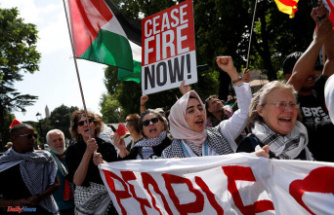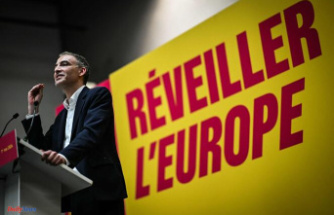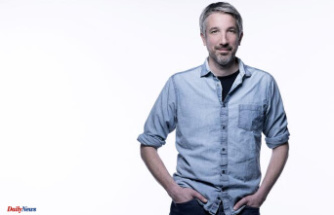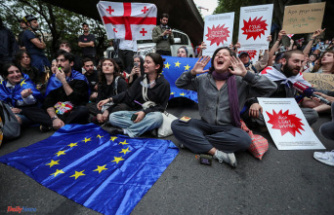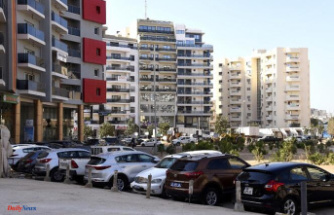A babushka, a couple of admirers, an autistic child and his family, a desperate single mother wanting to emigrate from the offensive in Ukraine: Yevgeny Roizman receives them at the headquarters of his charitable foundation, in Yekaterinburg, his hometown in the Urals , where he was once the mayor.
That Friday is also the wedding of one of his daughters. Between two interviews during his permanence, Evguéni Roïzman, 59, goes to attend the ceremony. Then comes back and gets back to work.
Tall, sporty, Evguéni Roïzman has a cowboy look and wears red moccasins. But his confidence wavers as soon as AFP asks him if he has a message to send to the Ukrainians, whose country is on fire and bloodshed.
"I'm scared to call my friends in Ukraine because they'll tell me don't ever call me again. It's an extreme sense of guilt. I totally understand what's going on. What can I say to Ukrainians? I ask their forgiveness and wish them all the strength and courage."
Among those close to him, there is "a feeling of disgust, a horrible thing is happening, the living are caught in an ignoble evil and this evil prevails before our eyes", says Mr. Roïzman, in reference to the actions of the Kremlin.
Then he pulls himself together: "No, it won't happen like that, in the end, justice will prevail and everything will be fine."
However, the noose is tightening around Evguéni Roïzman. Recently, he was sentenced to three fines for condemning the offensive in Ukraine in which, he says, the collective responsibility of the Russians is "indisputable".
"We are afraid that they will imprison him like all the others. So we came to see him and shake his hand before he was persecuted", summarizes Evguénia Kouzmenkova, 36, who arrived especially from Siberia with her husband.
"I understand that they can arrest me," said the person concerned. "I have no illusions, I'm not afraid."
Crushed by previous waves of repression, the Russian opposition has suffered the final blow since the assault in Ukraine. The last great critics of Vladimir Putin either emigrated or were imprisoned.
Recently, Ilia Iachine and Vladimir Kara-Mourza, two opponents who remained in Russia, were imprisoned for having denounced the conflict. They risk ten years in prison. Before that, the opposition had already been devastated by the January 2021 imprisonment of its figurehead, Alexei Navalny.
Evguéni Roizman knows them all and supports them. For him, the Russian opposition has been destroyed. He still speaks, but says he no longer has any political ambitions.
- Court et brutal -
Mr. Roïzman had a sometimes troubled and controversial journey before entering the resistance. From a Jewish engineer father and a Russian childcare worker mother, he spent two years in prison during his youth.
In the 1990s, he was an entrepreneur in Yekaterinburg, then a stronghold of the mafia. In 1999, he launched an association for the fight against drugs accused of violating drug addicts, which he denied.
From 2003 to 2007, he was a deputy, then conquered in 2013, under the nose and beard of the Kremlin, the town hall of Yekaterinburg and its 1.5 million inhabitants.
This function is above all representative, without great prerogatives, but he is the only opponent elected at such a level. In 2018, the direct election of the mayor was abolished and Mr. Roïzman resigned.
Since then, he has focused on his influential charity, but does not forget to rebuke power. On Twitter, blocked in Russia and inaccessible without a VPN, he has a specialty: writing volleys of inflammatory mini-comments, often stuffed with swear words, under pro-Kremlin media posts.
"It's short and brutal anti-propaganda," he explains, assuring that vulgarity allows "revealing the true nature" of official information.
This lover of literature, an admirer of Rabelais, goes on to the difficulty of translating swear words, then breaks off to return to his daughter's wedding.
Outside, at the entrance to his foundation, he comes across two women who have come with abandoned kittens. Evguéni Roïzman relaxes and improvises a new mission: "Find a home for the kittens."


